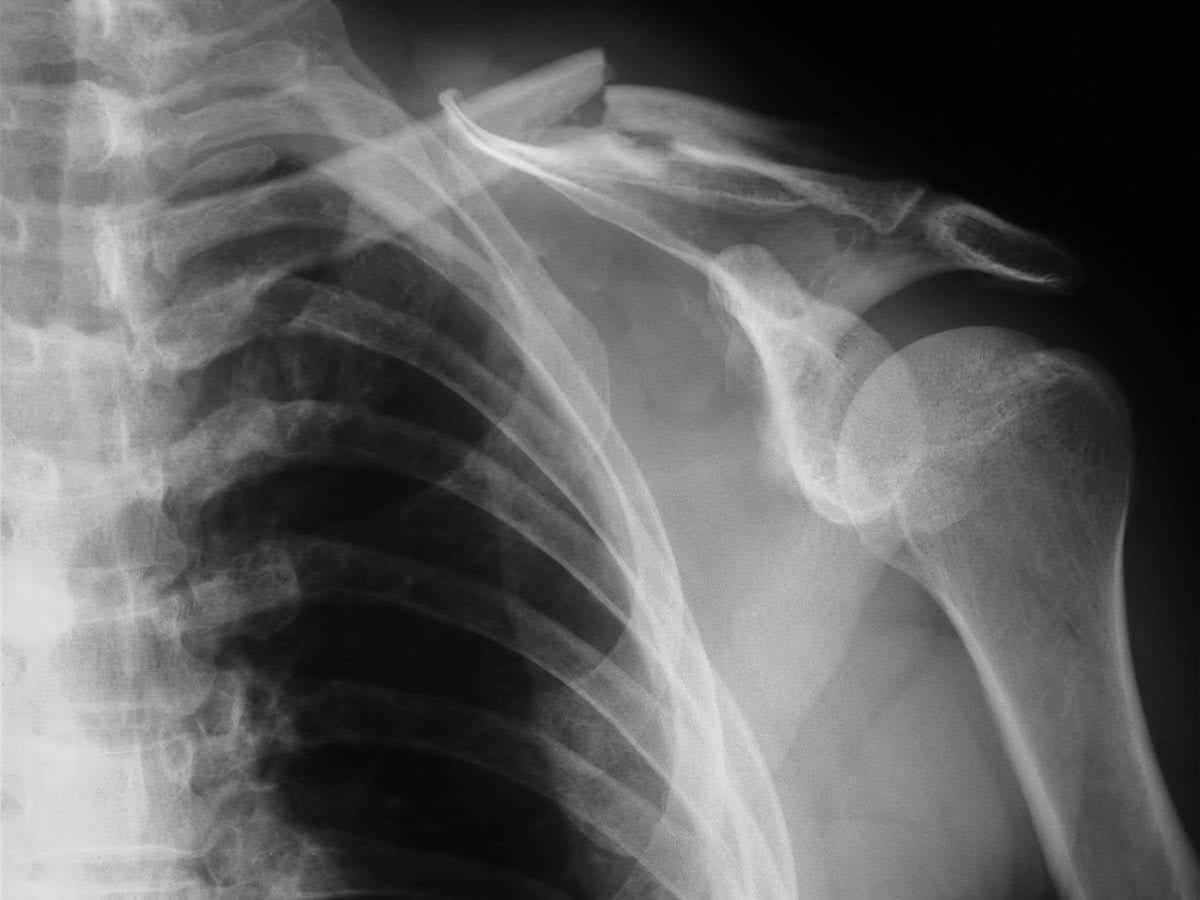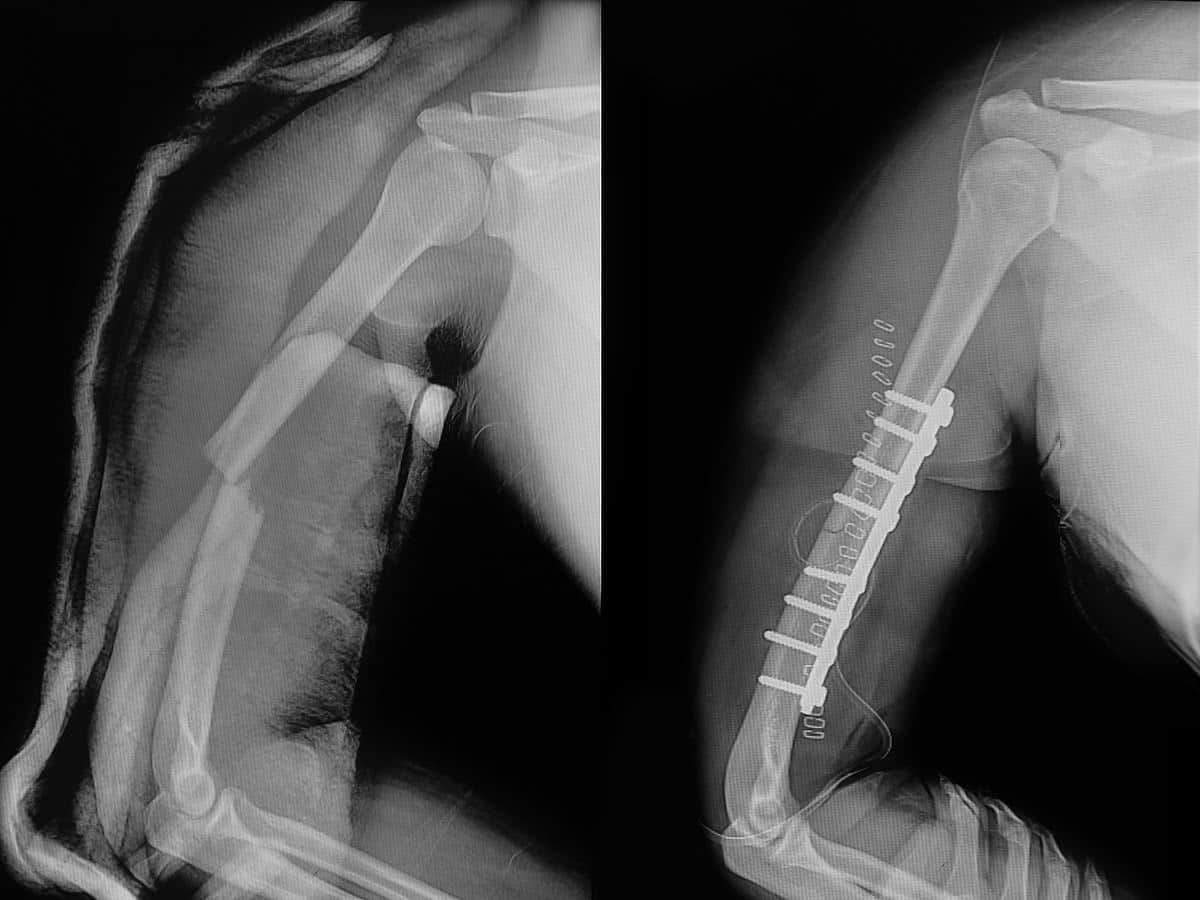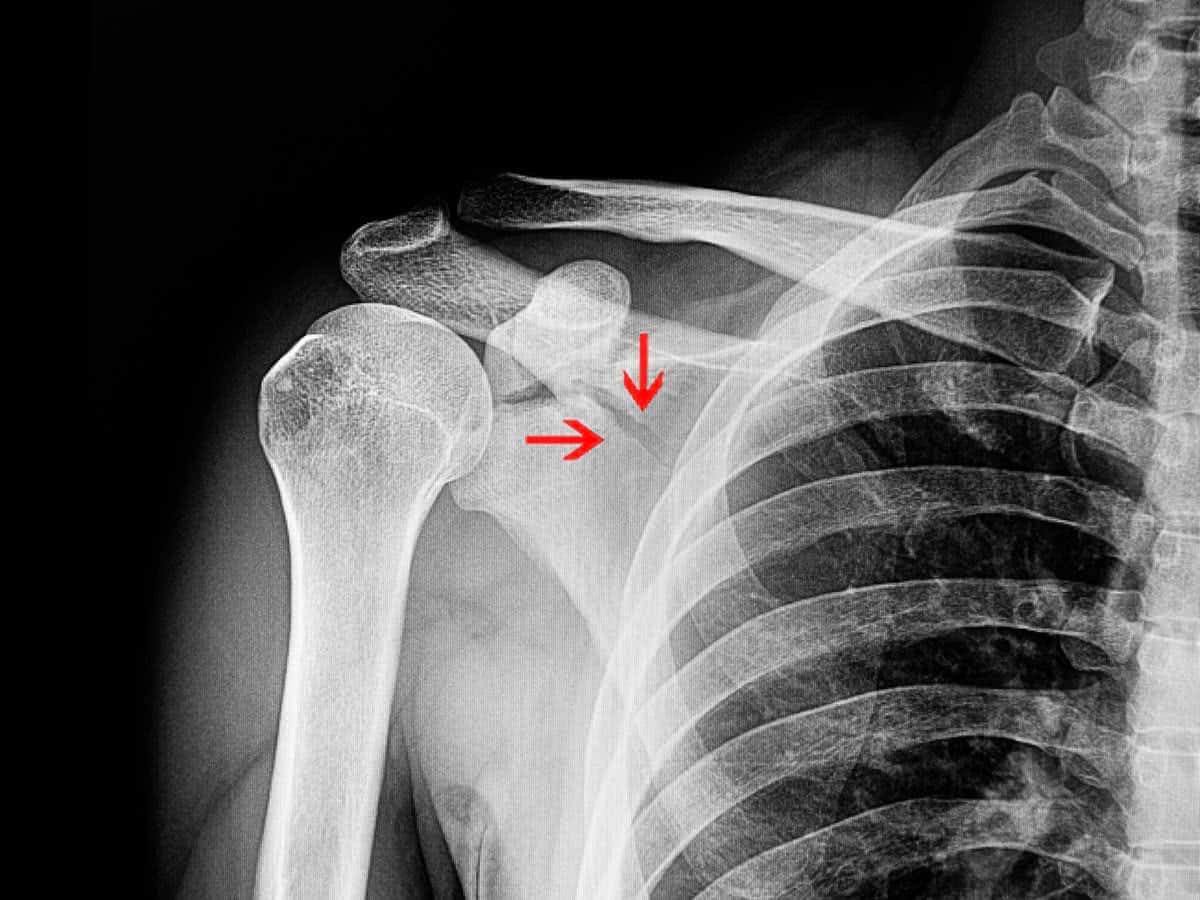Introduction
Where one or more fractures have occurred in the bones of the shoulder - the scapula (shoulder blade), clavicle (collarbone) and humerus (upper arm bone) – these will sometimes need to be stabilised or fixed via fracture fixation, however around 80% of all shoulder fractures are 'non-displaced' (i.e. 'simple' fractures) and these generally do not require surgery.
The three common types of shoulder fracture are:
Clavicle fracture
Clavicle fracture is often caused by high energy direct impact injury.

Proximal humerus fracture
Proximal humerus fracture can often be treated without surgery.

Scapula fracture
Scapula fracture is a very rare fracture, with only 3%-5% of all shoulder fractures being this type).

Where surgery is required, this is normally conducted under a general anaesthetic and at the same time antibiotics are administered intravenously to minimise the risk of infection during surgery.
Preoperative Instructions
Note: In some cases, shoulder fracture surgery requires immediate treatment, in which case the following guidelines may not apply.
- Existing medication(s) – some medications can impact surgery, especially any anti-coagulant medication and medicine for diabetes; we will advise if any of your medication needs to be stopped (and when) well ahead of the day of surgery. Any other medication should be taken the morning of surgery with a little water (half a cup maximum).
- You should not shave (or wax) skin near where any surgical incisions will be made.
- No solid foods (cow's milk and drinks containing cow's milk are considered food) should be consumed within 6 hours of surgery; clear fluids (e.g. water, cordial) may be consumed until 3 hours before surgery and then nil by mouth from that point.
- Please advise us if you have a cold or fever, a cough or any other injuries or infections (e.g.: urinary tract infection or cuts / tears to the skin) – your procedure may need to be postponed as any of these may make anaesthesia or surgery unsafe.
- Please bring all imaging (e.g. x-rays / CT / MRI scans) with you to hospital.
- Please come to hospital at least one hour before your planned surgery, unless we advise you otherwise.
In very general terms make sure you follow a healthy and balanced diet before surgery and continue any regular physical activity up until the day of the procedure. If you smoke, you should ideally stop smoking at least four weeks before the procedure and otherwise as a minimum at least one week before.
Procedure
Procedures to fix fractures of the shoulder normally involve an incision to the front of the shoulder, and then the space between the pectoralis major and the deltoid muscle is gently opened to reveal the shoulder joint itself. Fragments of the fracture are then 'reduced' (i.e. moved back into the correct position) and temporary pins are used to hold the fragments in place.
A plate is then located on the humerus and screws are put through this plate into the fragments. The plate and screw device is designed in such a way that the screws, once located in position, will not loosen. More screws are put into the ball joint at the top of the humerus (the 'head') and the plate is finally fixed to the humerus bone. Once the procedure is completed, the muscles are moved back into place and the incision is closed.
Postoperative Instructions
After surgery for shoulder fracture, most patients need to stay in hospital for 1-2 days. A follow up review with Dr Moopanar is scheduled around 14 days after surgery where the incision is checked for healing progress, and around six weeks after surgery a follow up x-ray is scheduled to see how the fracture is healing. The recovery period after a shoulder fracture can be long, and range of movement and strength of the arm builds slowly over a 6-12 month period. Stiffness in the shoulder often lasts quite a long time after the original fracture.
Risks
As with all surgery, with shoulder fracture surgery there is always a risk of:
- Pain.
- Bleeding.
- Scarring.
- Infection (of the incision site, or in the chest).
- Blood clot (leg or lung).
- Stroke.
- Heart attack.
- Damage to nerves / blood vessels

